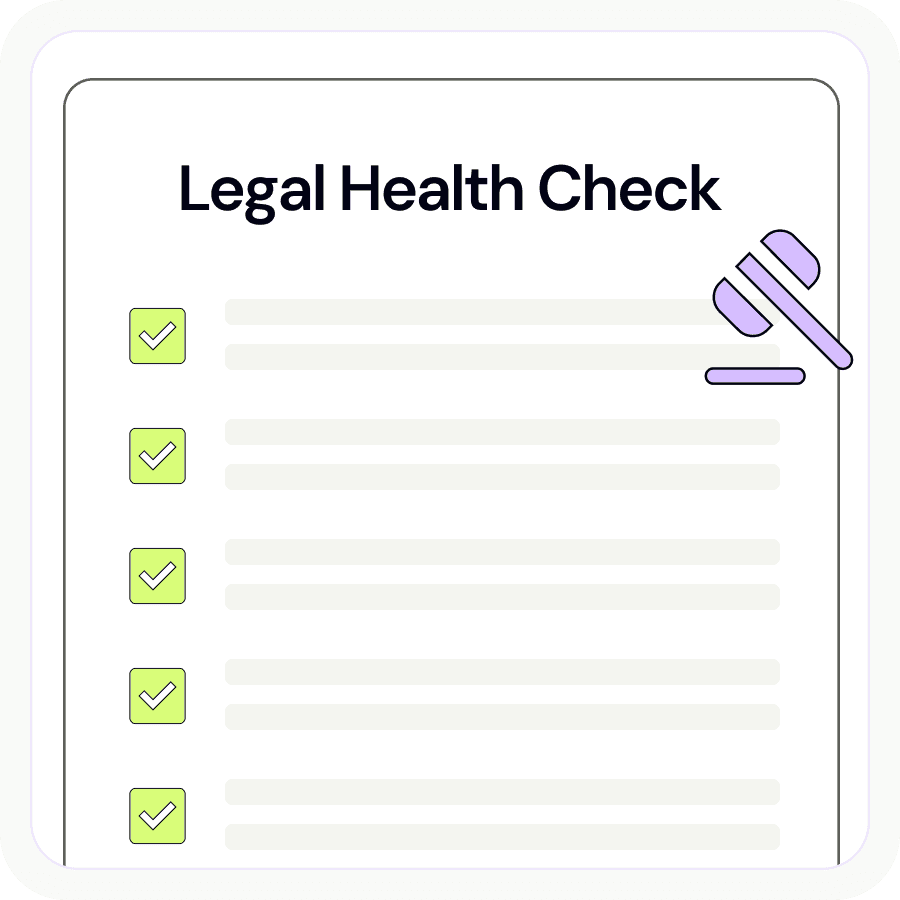If you have ever wanted to help people, a not-for-profit organisation (NFP) may be one of the best ways to provide support for people in need.
A not-for-profit (NFP) is an organisation that operates for its purpose, not for a profit or gain. The organisation can fall within two broad categories of either being a charity regulated by the Charities Act 2013 (Cth) or other non-charitable organisations such as sporting clubs and professional associations.
Well-known NFPs in Australia include Beyond Blue, The Smith Family and World Vision.
When starting a NFP, there are general obligations that need to be met that arise when starting a business. Additionally, for charitable NFPs, the Australian Charities and Not-for-profits Commission (ACNC) regulates the obligations of Australian charities. This article will provide an overview of the essential elements needed to start your NFP organisation.
What is a Not-for-profit organisation
A not-for-profit organisation in Australia exists for a purpose and not for commercial gain. They include both charities and other organisations such as sporting clubs and professional associations.
What’s the difference between an NFP and charity?
Charities are a particular subset of NFP’s and are regulated by the Charities Act 2013 (Cth). In addition to this the Australian Charities and Not-for-profits Commission (ACNC) also regulates what charities can and cannot do and ensures their compliance with the legislation.
Getting started : the pre-planning steps
Effective research before establishing your organisation’s plan will help to set the foundations of your organisation early on. In your initial research, you should think about the costs associated with setting up an NFP. Cost is a major factor, and having a working knowledge of spending – big and small – is a critical step to ensuring the viability of your idea.
Develop a Not-for-Profit organisation plan
Excellent planning often leads to success. Using your research, you should develop a formal plan to guide your organisational needs. This should include your:
- Organisation objectives and goals —how far you want to take your organisation, what will be the right goals for your business and how you will achieve them. Above all, your NFP needs to benefit the public. Therefore, it is important to establish the charitable purpose of your organisation.
- Cost is a major factor particularly when setting up a NFP and hence having a working knowledge of spends—big and small is key.
- Target market—who is the ideal customer for your business?
- Competition- who is your competition?
- Marketing strategy – how will you promote your business?
- Organisation name – once you have decided on a name, you can check the availability of the organisation name. If your chosen name is available, you can then register your organisation as a trademark.
You can always seek assistance from a professional accountant or business lawyer to assist you with this if you aren’t confident in developing an organisation plan yourself. It’s important to revisit and review your organisation plan regularly.
Charitable purpose
To be registered as a charity or NFP, the organisation must have a charitable purpose (or purposes). Ensuring your organisation’s purpose falls within one of the categories is critical.
Under the Charities Act, there are twelve charitable purposes that your NFPs purpose has to fit within. They are as follows;
- Advancing health
- Advancing education
- Promoting social or public welfare
- Advancing religion
- Advancing culture
- Promoting reconciliation, mutual respect and also tolerance between groups of individuals that are in Australia
- Promoting or protecting human rights
- Advancing the security or safety of Australia or the Australian public
- preventing or relieving the suffering of animals
- Advancing the natural environment
- Promoting or opposing a change to any matter established by law, policy or practice in the Commonwealth, a state, a territory or another country (where that change furthers or opposes one or more of the purposes above) and
- Other similar purposes ‘beneficial to the general public’ (a general category).
To be a NFP, all of your activities must be toward charitable purposes; however, this does not mean your charity cannot turn a profit.
This must align with the reason for your NFP set-up, except for purposes that are ‘incidental or ancillary’ to the overarching charitable purpose. This a vital step in setting up your charity, answer the following questions to outline your purpose.
- Who will benefit from your activities?
- What is your charitable organisation trying to achieve?
- What activities will you conduct?
- Who is your target audience?
- Is there a need for your organisation, or similarly, is there an organisation that already operates with the purpose of your NFP?
Determining your legal structure
When you apply to the ACNC, you will need to choose your structure. You can choose to operate as an;
- Unincorporated association – is an organisation that is not a separate legal entity from its members.
- Incorporated association – is an effective legal structure for smaller organisations, creating a separate legal entity is easier and simpler than setting up as a company.
- Company – This is an organisational structure that creates a separate legal entity from its members and provides limited liability and transferable shares.
- Co-operative – is a jointly-owned enterprise operated for the mutual benefit of members.
- Trust – When registering as a charity, a trust must meet the requirements of a charitable trust.
- Indigenous corporations – support the education, land, recognition and housing needs of Aboriginal and Torres Strait Islanders.
According to the Australian Securities and Investments Commission (ASIC) the most common legal structures used by NFPs are public companies limited by guarantee (CLG) and an incorporated association. The legal structure you choose for your organisation will impact the requirements you need to follow.
| Incorporated Association | CLG | |
| What is it? | When an association incorporates it becomes its own legal entity, separated from the legal identity of the directors and owners. In addition to gaining the ability for the organisation to own its debts and assets, the members gain the benefit of limited liability. | CLGs is a type of public company registered under the Corporations Act 2001. The members of a CLG replace the shareholders in an ordinary public company. The members liability is limited to their guarantee amount. |
| Governance and Government Regulators | Incorporated associations are governed by state/ territory legislation and will vary based upon the location of your organisation. Depending on your location will vary who you need to report to. For example, if your organisation is incorporated in New South Wales, the government regulator will be NSW Fair Trading. Usually managed by a group of people referred to as a ‘committee’. The committee members are required to follow specific duties. | CLG’s are governed by Australian Federal legislation (Corporations Act 2001). CLG’s need to report to ASIC. However if the CLG is registered with the ACNC they are then required to report to ASIC for anything relating to the corporate status, and to ACNC for anything relating to its charitable status. CLG’s need to have a constitution as their governing document, that needs to reflect the NFP status and charitable purpose. They are managed by a board of directors. |
| Requirements | The requirements for incorporated associations vary depending on the State or Territory of operation. For example the requirements regarding the size of the organisation varies. The following requirements are applicable to the majority of incorporated associations. A NFP incorporated association must: – Have at least 5 members; – Operate within the state of registration; and – Adhere to the obligations of the relevant state regulator. | A CLG must: – Have at least 1 member; – Have at least 3 directors, and a company secretary; – Be governed by a constitution; and Adhere to the requirements of ASIC. |
| Advantages | Some of the advantages of an incorporated association include: – Simpler to set up and maintain – For most organisations there is less reporting requirements and simpler requirements than CLG’s – More suitable for smaller, locally focused organisations | Some of the advantages of CLG’s include: – Ability to operate across Australia in multiple states and territories – If registered with ACNC in most situations you need only to report to the ACNC |
| Disadvantages | Some of the disadvantages of an incorporated association include: – Not suitable for groups with less than five members Inability to easily operate across multiple states or territories. – If an incorporated association wishes to work in more than one, they would have to register a separate incorporated association in each state or territory (or register as a Registrable Australian Body with ASIC) | Some of the disadvantages of CLG’s include: – If not registered with the ACNC, CLG’s are required to comply with the requirements under the Corporations Act, which can be complex. – Failure to comply would also lead to higher penalties. – The cost of setting up and operating a CLG is often more expensive than an incorporated association. |
Registering your Not-for-Profit organisation
Once you have done all the ‘pre-planning’ and planning, the next step is to register your NFP. You need to register for a few things to make your NFP official. For instance:
- The organisation’s name.
- An Australian Business Number (ABN) to help the Australian Tax Office (ATO) and customers identify your business.
- Register your tax requirements.
- Ensure that all relevant licences or permits are valid.
- If your NFP qualifies as a charity, you may also choose to register with the ACNC.
Additionally, your charity must have an ABN, meet the legal definition of a charity, meet governance standards and not be an organisation that cannot be registered.
Marketing your Not-for-Profit business
To be competitive, you need to effectively promote your business. As a start, it would be helpful to:
- Set up and maintain a website which should contain key information about your business including your contact details. It is also important consider any website terms and conditions to ensure that your customers are safe;
- Set up and maintain a social media presence such as a Facebook and Instagram page;
- Use traditional physical marketing methods including newspaper advertisements and flyers; and
- Promote through suppliers who sell air conditioning equipment.
Having an online presence is important even for construction companies. Using websites like Shopify or GoDaddy can help you create a well-established business so that your customers can easily find you.
Tax concessions
Given your organisation is operating as a NFP, a perk is that there are tax concessions. If your organisation fits within the following categories, you can apply for an income tax exemption.
- registered charities;
- community service organisations;
- cultural organisations;
- educational organisations;
- employment organisations;
- health organisations;
- resource development organisations;
- scientific organisations, and
- sporting organisations.
How Lawpath Can Help
At Lawpath, we can help guide you through starting your own Not-for-Profit organisation.







